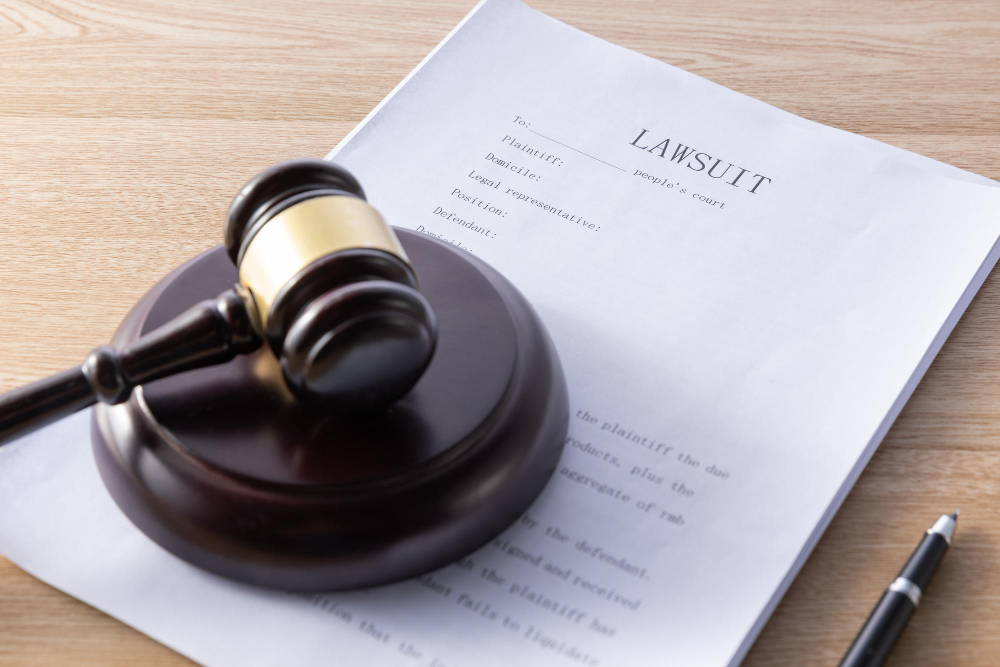Many people who lived, worked, or visited Camp Lejeune, a Marine Corps base in North Carolina, between 1953 and 1987 were unknowingly exposed to contaminated water. This water contained harmful chemicals like trichloroethylene (TCE) and perchloroethylene (PCE), linked to serious health problems.
If you or a loved one resided at Camp Lejeune during this time and are experiencing health concerns, it’s important to understand your options. The Camp Lejeune Justice Act (CLJA) established a path for individuals affected by the contamination to seek compensation. However, navigating the claims process requires gathering specific evidence to build a strong case.
It is highly recommended to get legal help to file a Camp Lejeune lawsuit to ensure you have the best chance of a successful outcome. This article will guide you through the essential evidence to support your claim.
Contents
Establishing Exposure
The Camp Lejeune Justice Act (CLJA) requires you to prove you were exposed to the contaminated water at Camp Lejeune. This means demonstrating that you resided, worked, or even visited the base for at least 30 days between August 1953 and December 1987. Fortunately, various documents can help establish this residency or presence.
Military orders, housing records, and utility bills are excellent evidence. These documents clearly show your connection to Camp Lejeune during the relevant timeframe. Gathering proof might require more creativity if you were a dependent or a short-term visitor.
School records, travel documents, or personal letters mentioning your time at Camp Lejeune can be helpful alternatives. Remember, the key demonstrates a link to the base within the specified dates. The next section will explore the health conditions potentially linked to the contaminated water.
Medical Conditions
The good news is that the CLJA recognizes certain health problems as presumptively linked to the contaminated water at Camp Lejeune. If you have one of these conditions, you don’t need to prove a direct connection between your illness and the water exposure.
Some of these presumptive conditions include various cancers like bladder, kidney, and liver cancer, as well as specific blood disorders like adult leukemia and aplastic anemia. Additionally, birth defects and Parkinson’s disease are also on the presumptive list.
However, the CLJA also acknowledges that other health problems might be related to the contaminated water. You can still file a claim if your condition is not on the presumptive list. But in this case, you’ll need documented medical evidence establishing a clear link between your condition and your time at Camp Lejeune. We’ll discuss the importance of such evidence in the next section.
Evidence of Medical Connection
Having strong medical records is crucial for supporting your Camp Lejeune water contamination claim. These records should clearly document your health condition, including the date of diagnosis and any relevant medical history. Ideally, the records would show the condition’s onset after your time at Camp Lejeune, strengthening the potential link to the contaminated water.
Medical records alone might not be sufficient for claims involving non-presumptive conditions, where a direct connection needs to be established. Consulting a doctor specializing in environmental health may be necessary in these cases. Their expert medical opinion can help bridge the gap by analyzing your medical history and exposure details, ultimately strengthening your claim.

Gathering Additional Supporting Evidence
Beyond medical records, other evidence can bolster your claim. Witness statements from individuals who lived at Camp Lejeune during the contamination period can be valuable. Their firsthand accounts can corroborate your time at the base and potentially shed light on the water quality concerns at the time.
Environmental reports or news articles documenting the contamination can also serve as supporting evidence. These resources can help establish the presence and severity of the water quality issues at Camp Lejeune.
Legal Considerations and Resources
While this article has outlined the essential evidence for your claim, navigating the legal aspects of a Camp Lejeune water contamination case can be complex. Consulting with an attorney specializing in veterans’ benefits and environmental claims is highly recommended. Their expertise can ensure your case is presented effectively and that you receive the full compensation you deserve.
Fortunately, there are also resources available to assist you. The Department of Veterans Affairs (VA) offers information and support about Camp Lejeune water contamination. Additionally, the Camp Lejeune Claims Center can be a valuable resource for filing your claim and obtaining further guidance.




